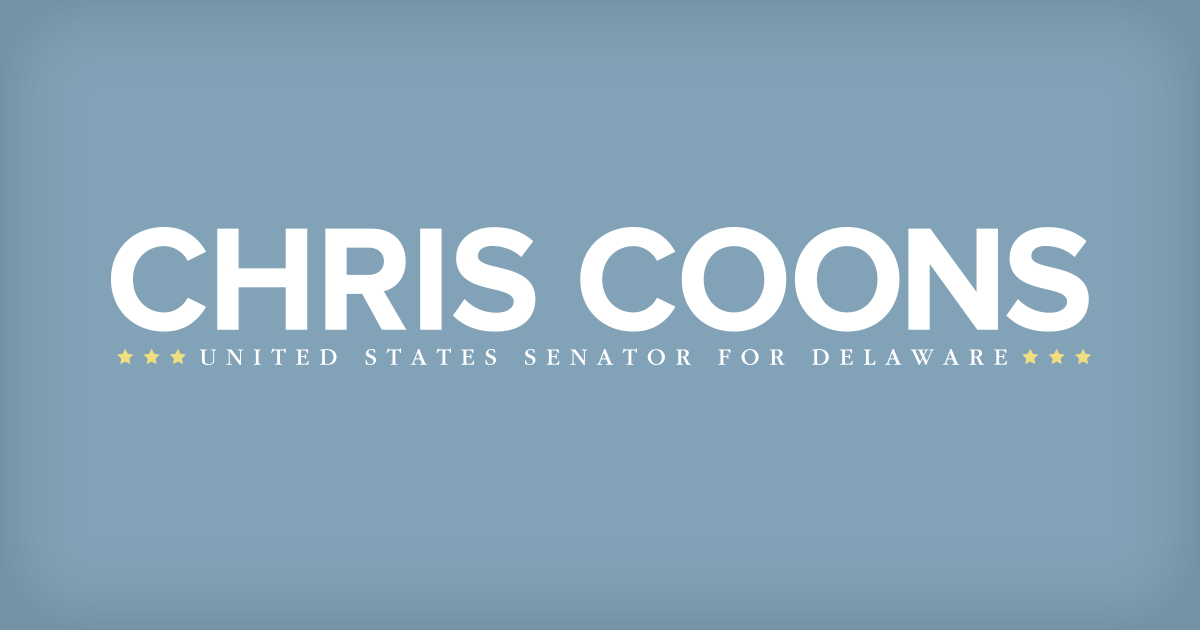Source: United States Senator for Delaware Christopher Coons
WASHINGTON – Today, U.S. Senators Chris Coons (D-Del.), a member of the Appropriations subcommittee that funds housing and community development programs, and Raphael Warnock (D-Ga.), a member of the Banking, Housing, and Urban Affairs Committee, sent a letter to Senate and House leadership urging inclusion of the $10 billion Community Revitalization Fund (CRF) in the final budget reconciliation deal.
The CRF, first proposed in President Biden’s American Jobs Plan, would award federal funding directly to community-based organizations, nonprofits, and community development corporations (CDCs) that are leading collaborative, comprehensive civic infrastructure projects in distressed communities. Civic infrastructure refers to the physical spaces that support a community’s social, economic, and civic fabric. These types of civic infrastructure projects complement affordable housing investments in neighborhoods and are critical to breaking the cycle of concentrated, intergenerational poverty.
“Establishing this $10 billion Fund in the reconciliation bill would help close the gap in financing civic infrastructure projects in underserved neighborhoods across the country, advance racial equity, and support President Biden’s Build Back Better Agenda,” wrote the senators.
Purpose Built Communities (PBC), a national nonprofit that helps neighborhood-based nonprofits implement a comprehensive, long-term, place-based revitalization model, is just one example of a network that could be scaled significantly through the CRF. The nonprofit was established in 2009 after the successful revitalization of the East Lake neighborhood in Atlanta, Georgia. PBC has since expanded its network to 28 other neighborhood-initiatives, including one in Wilmington, Delaware called REACH Riverside.
On Tuesday, the House Financial Services Committee advanced their portion of the reconciliation bill which included $7.5 billion for a similar program called the Community Restoration and Revitalization Fund.
The full letter is available here and below.
Dear Leader Schumer, Speaker Pelosi, Chairman Brown, and Chairwoman Waters:
Thank you for your leadership in advancing a legislative agenda that will help ensure that all Americans are included in a robust economic recovery. The reconciliation bill presents an opportunity for Congress to directly invest in the civic infrastructure of distressed neighborhoods that have faced systemic challenges. In the American Jobs Plan, President Biden proposes to make this investment through a $10 billion Community Revitalization Fund (CRF) that would “support innovative, community-led redevelopment projects that can spark new economic activity, provide services and amenities, build community wealth, and close the current gaps in access to the innovation economy for communities of color and rural communities that have suffered from years of disinvestment.” We strongly support the CRF proposal to finance civic infrastructure projects and urge you to fully fund it in the reconciliation bill.
The proposed CRF would be established as a new program at the Department of Housing and Urban Development (HUD) and would award planning and implementation grants directly to community-based organizations, nonprofits, and community development corporations (CDCs) that are leading comprehensive civic infrastructure projects. Community development financial institutions, philanthropic organizations, and state and local governments would serve as partners in the projects. The CRF builds on the Choice Neighborhoods program at HUD, but addresses the needs of a community beyond housing. For example, CRF grant recipients would use awards for redevelopment efforts such as restoring vacant buildings, constructing health centers and cultural spaces, and improving neglected land to create new parks and amenities. The CRF would prioritize projects that build community wealth and equity for existing residents in high-poverty census tracts and areas at risk of or experiencing rapid gentrification.
Various national networks across the country are already advancing place-based policies that could be scaled significantly through the CRF. For example, Purpose Built Communities (PBC) is a national nonprofit that helps neighborhood-based nonprofits implement a comprehensive, long-term, place-based revitalization model to break the cycle of concentrated, intergenerational, urban poverty. Seeking to create racial equity and support economic mobility and positive health outcomes for residents, these local nonprofits coordinate public and private partners’ efforts to build high-quality mixed-income housing, establish a cradle-to-college education pipeline, and create comprehensive community wellness resources. Founded in Atlanta, Georgia in 2009, the PBC Network is now comprised of 28 neighborhood-initiatives in 24 cities across the U.S.
The place-based revitalization model has been particularly impactful in our states. The model was first used in the 1990s in the East Lake Meadows neighborhood in Atlanta, an area where the crime rate was nearly 20 times the national average and the employment rate was around 13 percent. Two decades later, thanks to long-term investment led by the East Lake Foundation, children are excelling in the local school, new businesses have opened, and longtime residents are happier and healthier. In Wilmington, Delaware, REACH Riverside is using the same model to revitalize the Riverside neighborhood, a working-class neighborhood in Wilmington that has suffered years of disinvestment and impoverishment. As the 19th PBC Network Member, REACH Riverside is bringing together public and private partners to build 600 new units of high-quality, mixed-income housing, expand the local community center, improve education opportunities for students at the local charter school, and create a safe space for teens after school.
In these cases, and many others, community organizations must cobble together various sources of public and private funding each year, which is not an efficient or sustainable method of financing large-scale, long-term projects. That is why the new CRF is a promising tool to scale the transformative activities of organizations like those in the PBC Network. Establishing this $10 billion Fund in the reconciliation bill would help close the gap in financing civic infrastructure projects in underserved neighborhoods across the country, advance racial equity, and support President Biden’s Build Back Better Agenda. Thank you for your consideration of this proposal.
Sincerely,
###
